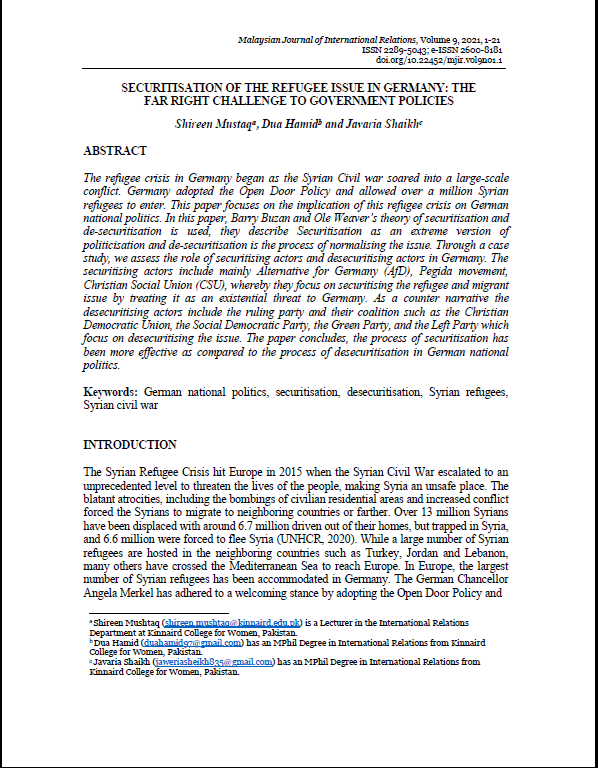Securitisation of the Refugee Issue in Germany: The Far Right Challenge to Government Policies
Main Article Content
Abstract
The refugee crisis in Germany began as the Syrian Civil war soared into a large-scale conflict. Germany adopted the Open Door Policy and allowed over a million Syrian refugees to enter. This paper focuses on the implication of this refugee crisis on German national politics. In this paper, Barry Buzan and Ole Weaver’s theory of securitisation and de-securitisation is used, they describe Securitisation as an extreme version of politicisation and de-securitisation is the process of normalising the issue. Through a case study, we assess the role of securitising actors and desecuritising actors in Germany. The securitising actors include mainly Alternative for Germany (AfD), Pegida movement, Christian Social Union (CSU), whereby they focus on securitising the refugee and migrant issue by treating it as an existential threat to Germany. As a counter narrative the desecuritising actors include the ruling party and their coalition such as the Christian Democratic Union, the Social Democratic Party, the Green Party, and the Left Party which focus on desecuritising the issue. The paper concludes, the process of securitisation has been more effective as compared to the process of desecuritisation in German national politics.
